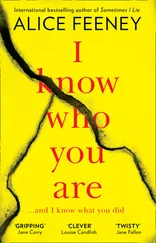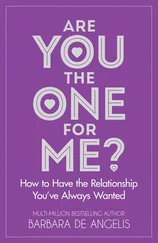“Here is possible to see the equipment collected from captured American agents,” Sveta translated. “These agents of CIA could speak Russian, dressed like Russians, but could not fool KGB. We knew their Soviet passports were counterfeit because ...” Sveta paused and looked at me. “How do you call small pieces of metal that bind together the pages of the passport?”
“Staples?” I said.
“Yes, okay, the staples were made of the stainless steel. American steel, not Soviet, you understand? It was the gift away.”
“The giveaway,” I said.
Anton licked his lips as he waited for my reaction; he couldn’t conceal his pride. The entire museum seemed designed to prove that the KGB had consistently outsmarted the CIA. We may have lost the Cold War, Anton seemed to be saying, but no one can beat us at espionage. He showed us KGB gadgets: a radio receiver disguised as a tree trunk, eyeglasses with poison hidden in their frames, a lipstick pistol, books with hollow centers, a National Geographic magazine with secret messages encoded in its print.
“Invisible inks,” Sveta said. “Writing that can only be seen under light of the special wavelength. Messages were hidden in letters, in postcards. They could read—how do you say?—between the lines.”
I’d forgotten, until that moment, that Jenny and I once experimented with invisible ink of our own. Someone—our science teacher, maybe?—had told us that messages written in lemon juice would vanish, only to reappear when the paper was exposed to heat. We sliced half a dozen lemons in her kitchen, squeezed the juice into a measuring cup, then diluted it with water. I was saving those lemons to make a pie, Mrs. Jones said with an exasperated sigh. You girls had better not leave all those seeds on the counter. We dipped cotton swabs into the diluted juice, and once we mastered the awkward task of writing with Q-tips, we filled a white page with random scribble. It was like writing with water, each letter disappearing as soon as it dried. The next morning we carried the blank page down to the basement laundry room and asked Mrs. Jones if we could use the iron. Under the iron’s heat, the secret words appeared, the color of coffee stains. We must have been nine.
Anton fired his light at another case.
“And here is possible to see methods of concealment,” Sveta translated. The light illuminated a gold signet ring. It looked like the ring that Mr. Jones used to wear.
“What is that?” I said to Sveta.
“That is concealment ring,” she said. “For the microdots.”
“Microdots?”
“Very small photographs,” she said, pinching her fingers together as if to sprinkle salt. “Entire documents reduced to size of ...”
“Punctuation marks,” said Anton, finishing her sentence.
“You speak English?” I said.
“Of course,” he said. “I am KGB.”
Svetlana folded her arms and looked at me. “Ponimayesh?” she said. You understand? She had already started using the informal “you.” She was talking to me as if we already knew each other quite well.
“What?” I said.
“The letter to Andropov,” she said in English. “From your Jennifer Jones. What message do you think was hidden in invisible ink?”
“She was ten years old,” I said. “She wasn’t a spy.”
“Nyet,” said Sveta. “But her father was.”
“That’s ridiculous,” I said. “He was a consultant.” And then I realized how absurd I sounded. All spies, I knew, had covers. Some posed as diplomats—half the employees of the American embassy in Moscow were CIA operatives—others as businessmen. Washington was lousy with consultants—it was a word tossed around so often that I never thought to ask what sort of consulting was going on. “Edmund Jones couldn’t have been a spy,” I said.
“Absolutely he was selling the secrets to us,” said Svetlana.
“You Americans,” said Anton, “never want to believe that anyone could betray your country. You are patriot, okay, but believe me, there are many Americans who worked for KGB. Foreigners are all the time asking me about the Rosenbergs. The Rosenbergs? Of course they were guilty. Edward Lee Howard? Without question. He is living in dacha right now, with protection of KGB.” He paused for effect. Then smiled at me as if I were a grandchild who had asked for candy. “How is the expression? Don’t insult our intelligence.”
* * *
“IT DOESN’T MAKE ANY SENSE,” I said to Sveta that afternoon. We were at the Metropol, having lunch. She wanted me to see the interior of the hotel. “Art Nouveau,” she’d promised. “Some of Moscow’s most beautiful rooms.” The dining room was sumptuous and empty. Though we were the only two patrons in the restaurant, I still felt compelled to whisper.
“What?” she said to me.
“Why would Andropov invite Jennifer Jones to visit the Soviet Union if her dad was in the CIA? And why would the CIA let him go? There are background checks.”
“Did I say he was CIA?”
“You said he was a spy ...”
“He was not CIA,” she said. “But I can assure you that Edmund Jones was invited precisely because he could carry the information with him. The gifts for our party officials? The book of Mark Twain for Andropov? What do you think was hidden inside that book?”
The waitress arrived with our borscht. She couldn’t have been more than eighteen. She had sharp elbows and a lank, defeated ponytail. She set down the bowls without smiling. I waited to speak until she walked away.
“He wasn’t a spy ... You have no proof ...” I said, though I could feel doubt gurgling in my stomach. My uneasy thoughts returned to Mr. Jones on Martha’s Vineyard all those years ago: the way his face had turned, on a dime, into one I didn’t know.
Svetlana offered me the basket of brown bread. “Russian bread,” she said. “Absolutely the best.”
I took a piece. She watched me bite into it and waited for my reaction. “Mmm,” I said. She looked victorious, as if my appreciation of the bread were more evidence of her country’s superiority. Svetlana had pushed me to order a big lunch, though she’d opted for only soup and a salad for herself. I knew that this was because she was going to treat me and was making her own meal small to keep costs down. I didn’t want her to spend money on me, but I was sure that I would offend her if I refused her hospitality. Russians were famously generous to guests.
“Why you think I was traveling with Jennifer?” she said.
“Because you were the epitome of Soviet girlhood?” I said.
“What is this ‘epitome’?”
“Epitome ... it means, like, the best example of,” I said. “Like you were an advertisement for girls in the Soviet Union.”
“Advertisement,” she said. “This is funny. But no, we were together with Jennifer because KGB wanted to know if Jones was double agent.”
“You were an informant?”
“In Soviet Union, comrade, everyone was informant.”
I had no appetite. After just one mouthful of soup, I retired my spoon.
“It is not tasty?”
“I’m not feeling well,” I mumbled.
“When Jennifer was here in 1983,” she said, “all she did was complain about the food.”
“Really?” Jenny’s book made everything about her trip sound dreamy. I didn’t know what to believe anymore.
“The only thing she would eat is the chicken Kiev. Very picking.”
“Picky,” I said.
“ Da. Only Americans are so rich they can refuse food.”
“Not all Americans are rich,” I said.
“But Jennifer was rich, yes? And you are rich. You and Jennifer attend the private schools. She had the swimming pool.”
Читать дальше












